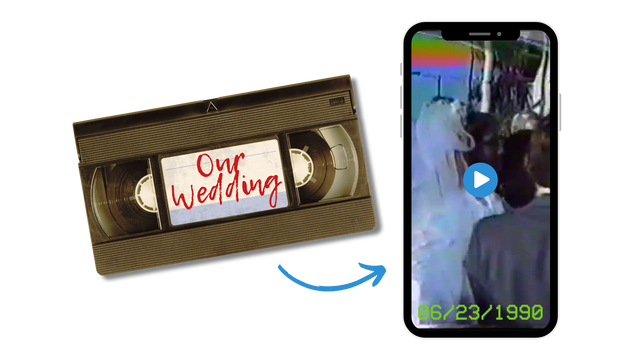If you’ve discovered a box of super 8mm film reels tucked away in the attic, you’re holding more than old plastic canisters—you’re holding family history. Weddings, birthday parties, first steps, and vacations were all captured on this groundbreaking film format of the 1960s and 70s.
But here’s the problem: projectors are rare, film deteriorates, and every year you wait, the images fade further. You’re the hero of this story, but without a plan, those reels risk being lost. This guide will help you understand the value of your film, the threats it faces, and the steps to rescue it.
Why Super 8 Changed Home Movies
Before digital cameras and smartphones, families relied on 8mm movie reels to capture life’s highlights. Kodak’s introduction of film super 8 mm in 1965 was revolutionary. It offered:
- Sharper images thanks to smaller sprocket holes and a larger image area
- Sound recording on some reels, adding voices and music to silent memories
- Convenience with easy-loading cartridges compared to standard 8mm film
Super 8 became the dominant home movie format of its era. But while it made capturing memories easier, preservation is another story.
Why You Should Convert Super 8mm to Digital
Like all film, super 8mm film is fragile. Over time, reels suffer from:
- Color fading — blues wash out, faces lose warmth
- Brittleness — reels snap under projector tension
- Vinegar syndrome — a chemical breakdown that smells sour and warps the film
Digitizing your reels now prevents further damage and allows you to relive them on modern devices. 8mm film to digital conversion is the safest way to preserve family history.
Explore our digitizing prices here →
The Professional Digitization Process
Unlike DIY methods that project film onto a wall and record it, professional scanning uses frame-by-frame technology:
- Each frame is captured in high resolution
- Brightness, contrast, and color can be gently corrected
- Files are delivered as MP4s, ready to share or store in the cloud
This ensures your home movies look their best and are safe for generations to come.
Start with our 8mm Film Reels service →

Eight MM Movie vs. Super 8mm Film
Not sure what you have? Look for the sprocket holes:
- Eight mm movie film: Larger sprockets, typically silent
- Super 8mm film: Smaller sprockets, sometimes includes a magnetic audio stripe
Both can be digitized together, preserving the full family archive.

FAQ: People Also Ask
What is super 8mm film?
A film format introduced by Kodak in 1965, designed for sharper images and optional sound compared to standard 8mm.
How do I play super 8mm film today?
Most projectors are obsolete and unsafe. The best option is digitizing reels with professional scanning.
Can super 8mm film have sound?
Yes. Some reels feature a magnetic stripe that carries audio, which can also be digitized.
How long does super 8mm film last?
In ideal storage, 40–60 years. But most reels show fading or brittleness much earlier.
What’s the best format for digitization: DVD or digital files?
Digital MP4 files are preferred—they’re easy to share, back up, and don’t degrade like DVDs.

Recommended Next Reads
Does 8mm Film Have Sound? What You Need to Know About Old Reels
Super 8 Film Scanner: Why You Shouldn't Do It Yourself
Home Movies: How to Rescue Family Reels Before They Fade
The History of Video: How We Captured Life One Frame at a Time
Super 8 Film: How to Rescue Priceless Family Memories from Old Reels
📧 Want more tips like this?
Subscribe to Heirloom emails to get expert tips on memory preservation, exclusive discount codes, and early access to digitizing services. We never spam, and it’s easy to unsubscribe anytime.



